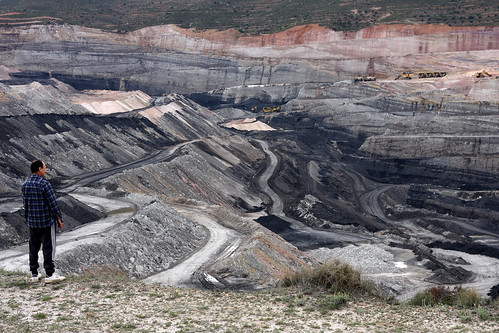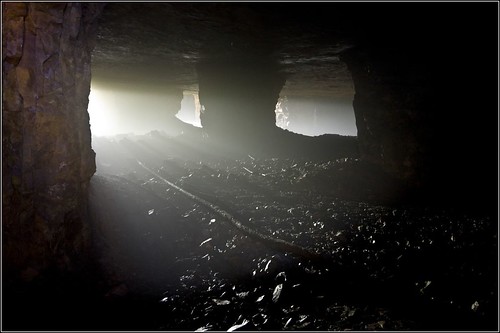 Previous Story: Should NZ Allow Mining 2
Previous Story: Should NZ Allow Mining 2
"I gave some thought to the information and arguments you gave me yesterday," said Rosh, "in favor of allowing mining on NZ conservation land."
"New Zealand is already a miner, so the issues here are whether it is ok to mine incrementally on conservation land, and if so, how much more mining is ok for the country.”
“Brownlee had used the "greater good" argument. For the greater good, means for the benefit of the many."
"This implies that it is ok to take difficult decisions that the minority may not agree with or could be harmed by, if the decision is good for the majority.”
“Like a general, willing to lose a platoon defending national borders because the country will be saved. Taxes are not good from an individual point of view, but they are for the greater good of the nation."
"Similarly, environmentalists may oppose mining on conservation land, but it would be done if the country benefitted.”
“The Government also has a solid argument in saying that not only are they adding more net land to Schedule 4, they are also estimating the extra ecological impact of mining on a bit of conservation land to be minimal. Again, more good than harm. What remains unanswered is why do they have to use this conservation land at all?”
“Especially given that alternatives are available, though they might be a little bit more expensive, and that we already mine heaps on public land. What pressing economic reasons are there to encroach on conservation land? So that would be my line of questioning. What did you find were the main arguments against mining?" asked Rosh.
“I’ve collected some quotes from the opposition," Josh answered, "which concisely sum up their arguments against. I’ll start with MP Jacinda Ardern, who in 2010 thought that the Government decision was shortsighted and dangerous."
“The Government cannot simply bat away this issue with claims that community groups and the opposition are scaremongering. Why would the Government remove areas of the conservation estate from Schedule 4 unless it wanted to make it easier to mine them?” she had said."
"Also in 2010, Green Party co-leader Metiria Turei had raised concerns that the Government had failed to consult Maori about the impact on them of mining the lands, and said: These plans are an attack on our values that we believe our country is worth protecting, that the environment provides us with essential ecosystems services that we cannot get from elsewhere - health and soil, clean water, bio-diversity. Those things are not negotiable.”
“Over the years there have also been concerns about harm to the economy, especially the country's "clean green" brand and the tourism industry, which is also one of New Zealand’s biggest industries and sources of income. It contributed $15 billion [or 9%] of the country's GDP in 2010, making it New Zealand's largest export industry."
“The Forest and Bird website called coal the planet's dirtiest fuel. It published this statement from NASA Climate Change scientist, James Hansen, who gave evidence via video at the resource consent hearing: Coal is the single greatest threat to civilisation and all life on our planet. At a time when it is crucial we rein in our carbon emissions, our government is actively looking to mine one of the planet’s dirtiest fuels: coal. If this mine goes ahead, it will increase our exports by 63% a year. This means a further increase in emissions.”
 “So in 2013, MP Moana Macky, spokesperson for Science, Climate change and Environment of the Labour Party stated:"
“So in 2013, MP Moana Macky, spokesperson for Science, Climate change and Environment of the Labour Party stated:"
"National has simply changed tactics in order to achieve its original intention of mining Schedule 4 land and is now progressing the activity under the guise of ‘scientific research’."
"No company would be spending time and money investigating the mineral potential of this land simply out of scientific curiosity."
"They have clearly been given a signal by Government that mining of these areas is back on the table. ”
“I am also not sure if the areas now targeted are of high conservation value or have other issues like being prone to debris flows and flooding."
"I think that the Government has managed consultations with Maori and other stakeholders better this time, and hence there have been no widespread protests again, but concerns remain."
"I’d like to end with a quote from Green Party MP Gareth Hughes, who said with regard to oil exploration: The risks of a deep sea oil spill are real and would affect all of us. I think the Government should give Kiwis a say."
“Ok,” said Rosh, “Some subjective objections and some objective arguments. So what risks and advantages do you see?”
Josh thought a bit as he walked, then answered confidently, “I think the only real advantage would be our economy getting a big financial boost. Mining is a big industry in New Zealand. It ranked 22nd in the world for iron ore production and 29th for gold production."
"In a 2008 report, consultant geologist Richard Barker estimated the potential value of just seven of our minerals, including gold, copper, iron and molybdenum at $140 billion. The Southland lignite field was valued at another $100 billion. And that was just onshore resources in 2008. Obviously the stakes and values are a lot higher now.”
“But New Zealand is known for its ‘clean-green’ image which also attracts tourists. Tourism is New Zealand’s biggest industry and by mining sections of the earth and ruining it, we are also ruining our “clean-green” image, which might cause a drop in “green” visitor numbers.”
“There are several environmental risks that also come with mining and oil exploration. Firstly, deforesting interferes with nature’s ecosystem. We need trees as carbon traps and to convert carbon-dioxide into oxygen. It would be less of a problem if there was surety that the mined land would be subsequently replanted.”
“Mining also releases carbon emissions into the atmosphere leading to epidemics such as global warming – and ultimately temperature increase, species extinction and many other problems like skin cancers. Another problem is Acid Mine Drainage - acidic water seeping out of old metal or coal mines."
"This water decreases the pH levels in surrounding soil and water and effects life around it. Sludge can also come out of mines and kill surrounding crops."
"This is a form of pollution as resources are contaminated. If the old mines are not rehabilitated completely, they cause problems and become toxic waste sites.”
“Oil drilling is risky too as spills can ruin marine biodiversity of any area. They kill the ecosystem underneath the oil spill and kill the fish and birds too."
"Stringent legislation would be required to minimize these happening and strong enforcement would be needed when they do happen, if New Zealand is to permit these in future.”
“A good summary,” said Rosh, “Let’s conclude by saying what you think should or will happen on this issue in the future and why, and what will be the longer-term consequences if this does occur.”
“I haven’t given that any serious thought yet Pa,” replied Josh, “let me evaluate it overnight and come back to you tomorrow.”
“Okay,” said Rosh, “The future of your world rests in your hands now.”
"Our hands," said Josh smilingly, "And what are your views on the matter?"
They walked back home, happy in each other’s company as they chatted all the way back about mining.
Note: Mining media used here are relevant to this story, but may not be from NZ. Refer to our Info Link below for media use related policies.
Next Story: Should NZ Allow Mining 4
 हिन्दी कहानियाँ
हिन्दी कहानियाँ  English Stories
English Stories  Except where otherwise noted, all our stories are licensed under Creative Commons Attribution-NonCommercial 4.0 International License. Contact us for permissions beyond the scope of this license.
Except where otherwise noted, all our stories are licensed under Creative Commons Attribution-NonCommercial 4.0 International License. Contact us for permissions beyond the scope of this license.